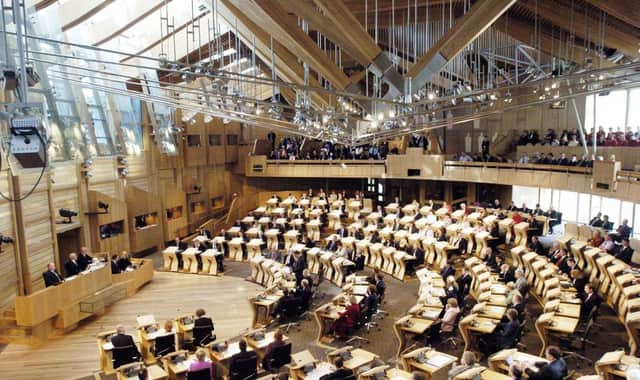Time may yet cool proposals on law of succession


It is a progressive government that cites a post-war intellectual German novelist in the foreword to one of its consultation papers. The Scottish Government consultation on the law of succession, however, opens its recent consultation with a reference to Thomas Mann, who famously said that “a person dying is more the survivor’s affair than their own”.
The consultation is the second stage of a programme of legislative reform on succession law in Scotland. Some more technical changes to succession law are already being introduced later this year following the publication of a draft bill. However, it is the proposals contained in this second consultation, which have far wider implications, that promise to overhaul the way that we treat the succession of someone’s estate on death in Scotland.
Advertisement
Hide AdAdvertisement
Hide AdSo why are these changes being proposed? It has come into play, really, as a result of the clash between the original piece of legislation which dates back to 1964 and the changing dynamic in today’s society.
The 1964 legislation contains some key principles which often lead to some surprise when put into today’s context. One of the major ones is that if a married person dies without a Will, there is no presumption that their spouse will inherit their entire estate. There are also prescribed rules which are aimed at making sure that certain beneficiaries such as your spouse and children are not entirely disinherited, if you do make a Will. The rules of disinheritance mean that, as in some European jurisdictions, there are safeguards which prevent close family members from being completely excluded.
In Scotland, the rights of a spouse and the children to claim part of the estate on death are known as “legal rights”. They currently carry the right to claim a percentage of anything that is not land or buildings (cash, investments and house contents, for example). The proposal in the consultation is that legal rights would be opened up to allow a claim against a percentage of the whole estate including land, buildings or otherwise. This would have a significant impact on the calculation of legal rights and, for those whose estates are made up of property (including landowners), it would mean that the legal rights claims have sharper teeth and a greater impact when it comes to defeating the provisions in a Will.
The other big change relates to what happens if someone dies without a Will. If the proposals are followed, then a spouse or civil partner would inherit the whole estate if there are no children. Otherwise, where there are children, there would be rules to give the children some protection but with a pre-set threshold for a sum made payable to the surviving spouse before any further division of the estate.
Under the proposal, co-habitants (in other words, those who live together but are not married) will also have greater protection when someone living in the same household dies. At the moment, there are limited rights to allow the courts to make some provision for the survivor, if there is no marriage or civil partnership. However, the Scottish Law Commission has identified strong public support for the protection of co-habitants and the government is now consulting on whether there should be prescribed rights for co-habitants to be included in the other’s estate on death, if a Will has not been put in place.
Murray Beith Murray is preparing responses to the consultation with a view to identifying any potential pitfalls. The outcome will be known later this year but it could be some time and certainly into the next parliamentary term, until any changes actually happen.
It is worth saying that this is not the first consultation that has taken place since 1964 and there have been several attempts before now to overhaul the law of succession. So it might be worth recalling one of Thomas Mann’s other quotes, not mentioned in the Scottish Ministerial Consultation: “Time cools, time clarifies: no mood can be maintained quite unaltered through the course of hours.”
• Peter Shand is a Partner with Murray Beith Murray www.murraybeith.co.uk